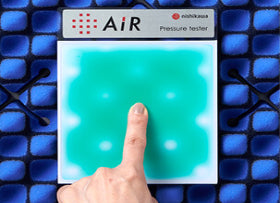Common Mattress-Related Sleep Disorders You Need to Know About
Suffering from various sleeping disorders has been a significant problem for countless people worldwide for decades. This dramatically affects their sleeping experience, lowering their sleep quality, duration, and timing.
In the United States alone, around 50 to 70 million people experience chronic sleeping disorders. Having one reduces the quality of sleep and can negatively impact someone's ability to function throughout the day. Sleeping problems can reduce concentration and productivity while also worsening other medical conditions a person might have.
Several factors can contribute to someone developing a sleeping disorder, such as stress, underlying health conditions, or lifestyle factors. Apart from this, the mattress someone is using can also play a role in someone getting into trouble while sleeping. Although mattresses do not directly cause sleep disorders, they can still aid in developing sleeping problems based on their ability to provide support and comfort while asleep.
Impact of Mattresses on Different Sleeping Disorders
As stated, mattresses do not directly cause someone to develop sleeping problems. But they can significantly impact sleep quality which can worsen different sleeping disorders.
- Sleep Apnea
One of countless people's most common sleeping problems is sleep apnea. This causes someone to have repeated interruptions in breathing while asleep, which might be caused by a blockage in the airway or lack of brain signaling. Typical symptoms include loud snoring, choking while sleeping, mood changes, and dry mouth.
A mattress that can't provide enough support to a person's body can worsen sleep apnea. A body that is not aligned correctly can further restrict the airway, making it harder to breathe while sleeping. Too soft mattresses can make the body sink and result in a curved sleeping position, further obstructing the airway.
Read More: Can a Mattress Help Relieve Sleep Apnea?
- Insomnia
Insomnia keeps someone from going to sleep and maintaining it for the rest of the night. It could also be in the form of early morning awakening, where people wake up several hours than usual and have trouble getting back to sleep. This can cause excessive daytime sleepiness, irritability, and difficulty concentrating. Insomnia affects millions worldwide, making it the most common sleep disorder around.
A mattress can worsen insomnia when it causes discomfort or restlessness to an individual, making it much harder for them to fall asleep. A bed that is too firm or soft can put more stress on various body pressure points, triggering discomfort and making it difficult to relax and drift into sleep.
Read More: How a Good Mattress Helps Mitigate Insomnia
- Restless Leg Syndrome (RLS)
This sleeping disorder causes people to have a staggering need to move their legs while resting, often accompanied by a tingling, crawling, or burning sensation. This can make it harder for someone to fall asleep, wake someone up from deep sleep, or wake someone up earlier, generally affecting their sleep quality.
A mattress can worsen RLS by not giving proper enough support to the legs, increasing the pressure the legs feel. This can aggravate the discomfort and restlessness associated with RLS. A mattress that causes excessive sinking might also make it hard for someone to find relief from the annoying sensation, significantly impacting their sleeping experience.
- Parasomnia
Parasomnia is a sleeping problem that causes people to exhibit abnormal movements or behavior while sleeping. This includes sleepwalking, sleep talking, teeth grinding, and groaning. A mattress that lacks proper support can contribute to sleep disturbances that can trigger parasomnia episodes. It can also decrease sleep quality, leading to fragmented sleep patterns and increasing the possibility of parasomnia occurrences.
Conclusion
Sleep disorders can profoundly impact someone's well-being and quality of life. So, it is crucial that people know how to alleviate these issues to prevent adverse impacts that can ruin how they function daily.
And while mattresses do not directly cause a person to develop a sleeping problem, looking for a bed that provides proper support and comfort can make a lot of difference. This can help countless individuals achieve optimal sleep and feel refreshed and ready to take on the day.
And if you are looking for a high-quality conditioning mattress that can give adequate support and ensure spinal alignment, then the AiR SI Mattress by nishikawa is for you. This mattress features a unique bumpy structure that conforms to the body, improving circulation and reducing pressure. It is made of breathable polyurethane for enhanced air permeability.




